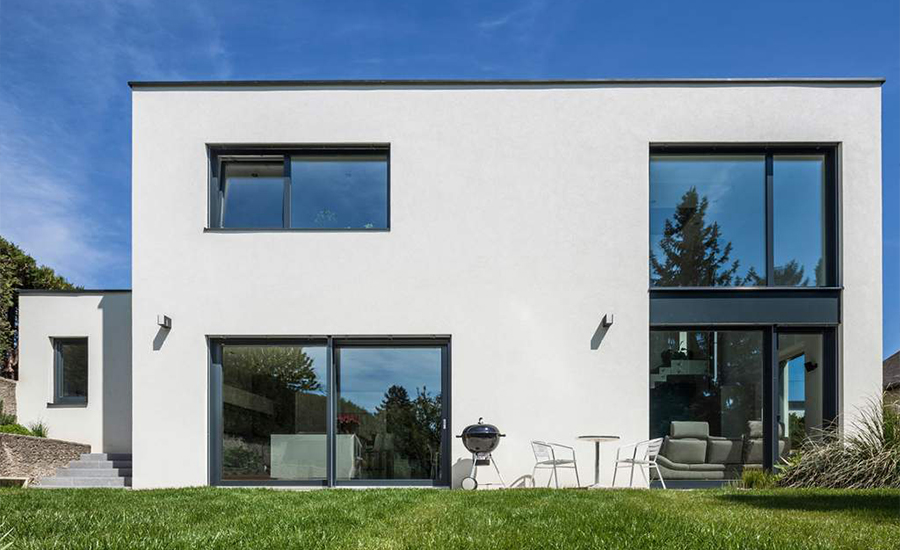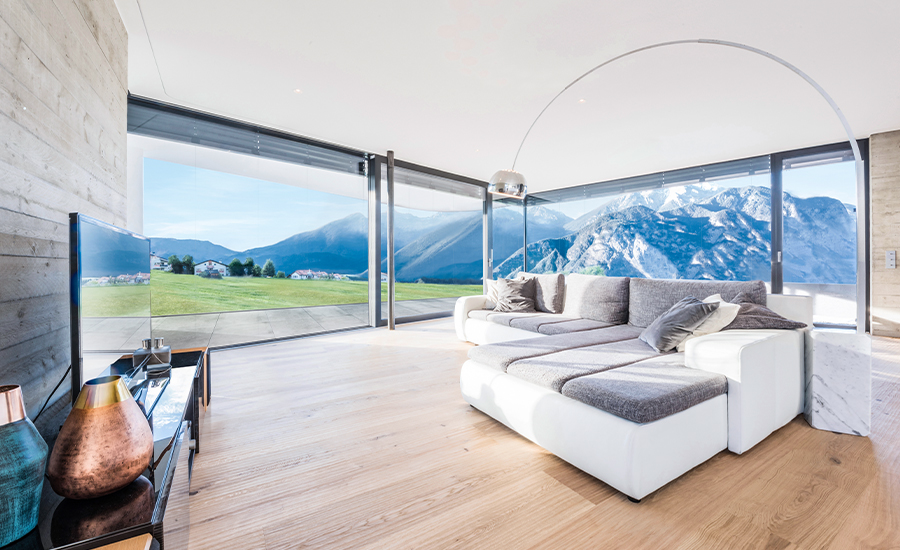Although originally used for commercial purposes, aluminum windows are now commonly used for residential homes due to their versatility. Aluminum is extremely robust and can support very large glass surfaces. Therefore, it is ideal for modern applications, such as floor-to-ceiling designs, panoramic views, and oversized dimensions.
Aluminum windows offer much slimmer profiles, for those seeking a minimalist and sleek appearance. This is often difficult to achieve with vinyl windows, as they require a thicker frame in order to support the weight of the glass. In terms of energy efficiency, both our uPVC (unplasticized vinyl) and aluminum windows offer exceptional performance, with U values under 0.9 (W/m²K). Depending on the architectural requirements, aluminum may be the better choice.
Aluminum windows can have a lifespan of over 30 years. Of course, not all aluminum windows are manufactured the same. Since aluminum is a conductive material, the window frame needs to be thermally broken in order to be energy efficient and to perform under our Canadian conditions. Modern aluminum window use non-conductive materials between the interior and exterior aluminum cladding to help reduce heat transfer & improve energy efficiency. Triple glazing, glass thickness, and the number of window gaskets also play an important role in the window’s durability. Additionally, optional protective coatings, such as anodization, reduce exterior maintenance and prevent rust. Our entire product line offers thermally broken frames, triple glazing, and three gaskets for maximum quality and long-term performance.
Thanks to their high load-bearing capacity, aluminum windows can reach heights of over 10 ft and widths of over 8 ft. Each unit is tailored according to our clients’ needs. Curtain wall systems are also available on request.
Yes. While they aren’t the cheapest material, they are still less expensive than wood and have features that make them worth every penny. Because aluminum windows are one of the best heat conductors around, this will help stop energy loss in your home or business.
Yes, because it is extremely strong and light, it can be applied to wood or other applications and is easy to paint and customize. This material can also resist UV rays and other elements compared to other materials such as vinyl.
The average price is between $400 – $1,200 per window installation, but this is just an estimate and it’s best to contact a Windows Specialist to get more accurate pricing.



